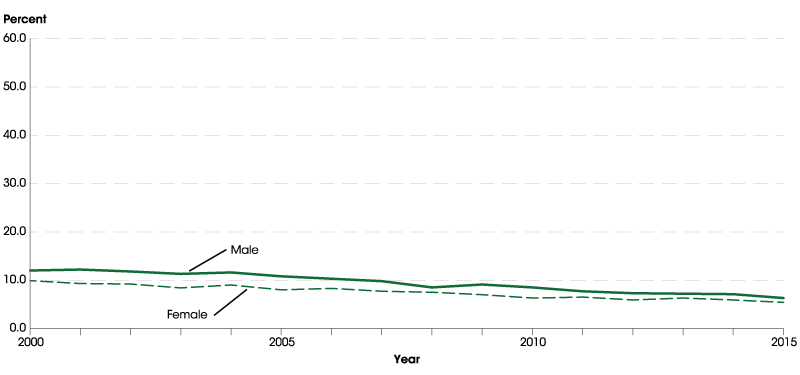Introduction and Overview
Increasing student retention rates is a challenging task for educators nowadays. The specified issue is especially topical for the target organization, which is a public school which at-risk students (i.e., learners from low-income families, socially dysfunctional families, families of minorities, etc.) attend. Furthermore, the fact that dropout rates remain rather high in the U.S. needs to be mentioned. According to the recent statistics, in 2015, dropouts rates were 4.1 (0.37), 6.5(0.98), and 8.4 (0.97) for White, Black, and Hispanic students correspondingly, as shown in Fig. 1 (National Center for Education Statistics, 2016).

As shown in Fig. 1, despite a slow decline in the dropout levels, the issue remains poignant. Therefore, precaution measures must be taken so that the dropout rates in the target environment could be reduced successfully. A change in the perspective from which the change process is viewed may help alter the environment and the students’ attitude toward the problem.
Change Scenario
The current lack of motivation among learners can be viewed as a reason for concern in the target school. The students seem disinterested in continuing their education. Therefore, there is a threat that they may drop out of school (Freeman et al., 2015).
The problem can be linked directly to Fullau’s themes. For instance, the lack of a human resource perspective does not allow addressing some of the issues associated with motivation and problem-solving (Murray, 2014). Furthermore, the introduction of the transformational leadership framework will help handle possible resistance among students and teachers. The learners and educators working in the identified setting will benefit from the change extensively (Bolman & Deal, 2013).
Change of Topic Analysis
As stressed above, the adoption of the HR approach must have a significant positive impact on the target environment. The focus on teamwork and the active promotion of cooperation and support among learners will lead to an increase in the academic progress of at-risk students (Freeman & Simonsen, 2015). Moreover, the application of the HR perspective will allow promoting efficient conflict management techniques and negotiation strategies, thus, reducing the risks of the dropout to a considerable degree. The political frame seems to be missing from the framework. Therefore, the incorporation of the strategies allowing for an increase in the learners’ political activity should be considered (Bolman & Deal, 2013).
Action Plan
There is no need to stress that the process of promoting change must be fast and efficient. Otherwise, the target population will not have a chance to alter their behaviors and attitudes toward the learning process and communication in the academic setting. Consequently, the reconsideration of the current leadership strategies and value system must be deemed as the first step toward a massive improvement. The following stages of the action plan must be listed:
Table 1. SMART Goals.
Conclusions
It seems that my current leadership skills and abilities need improvement so that the problem could be managed. The ability to identify students’ needs seems to be my strength, while the lack of skills for sustaining change is definitely a weakness. I believe that I will gain a better insight into the issue of promoting change. Furthermore, the opportunities for improving the functioning of a team will be created.
References
Bolman, L. G., & Deal, T. E. (2013). Reframing organizations: Artistry, choice, and leadership. New York, NY: John Wiley & Sons.
Freeman, J., & Simonsen, B. (2015). Examining the impact of policy and practice interventions on high school dropout and school completion rates: A systematic review of the literature. Review of Educational Research, 85(2), 205–248. Web.
Freeman, J., Simonsen, B., McCoach, B., Sugai, G., Lombardi, A., & Horner, R. (2015). An analysis of the relationship between implementation of school-wide positive behavior interventions and supports and high school dropout rates. The High School Journal, 98(4), 290-315.
Murray, M. (2014). Factors affecting graduation and student dropout rates at the University of KwaZulu-Natal. South African Journal of Science, 110(11-12), 1-6. Web.
National Center for Education Statistics. (2016). Status dropout rates. Web.